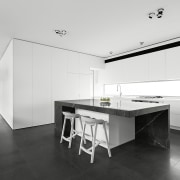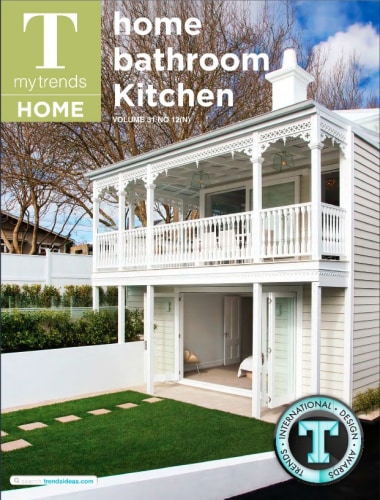New home with glass walls and indoor-outdoor flow
This new house features two glass pavilions separated by an outdoor terrace and a 25m lap pool
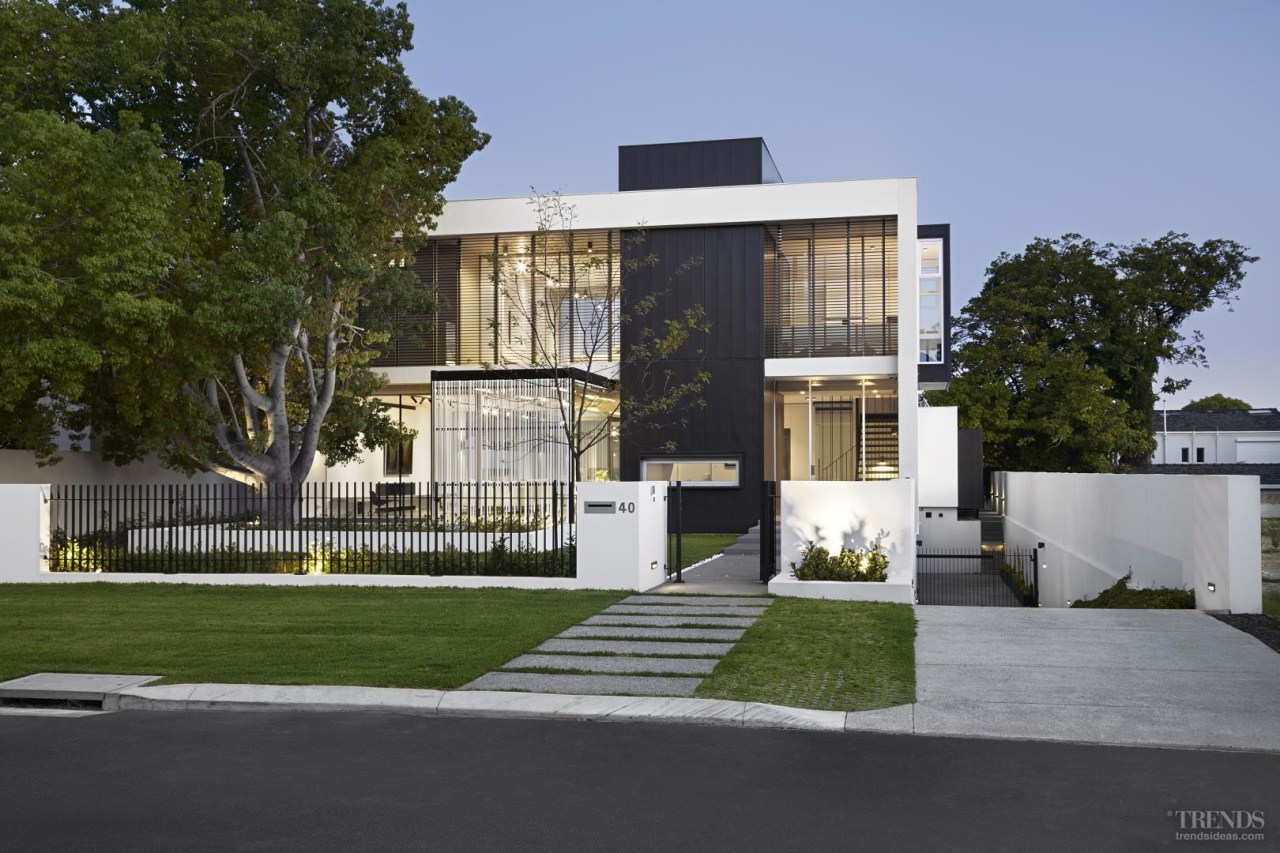
As older homes in established suburbs give way to new, the architectural typology changes. But it's not just what you see from the street that spells change – what's happening on the inside can be even more significant, and it's all about lifestyle.
This new house replaces a tired older home in a leafy suburb where most of the properties are large.
Architect Craig Steere of Craig Steere Architects was commissioned to design a home suitable for a family with four mature sons. The house needed to provide separate spaces for the parents and younger members of the family, but it also needed communal areas where everyone could be together.
These requirements determined both the look and form of the house. With the site measuring 60m from front to back, the architects conceived the house as a long volume comprising two linked glass pavilions – one a formal living area and private retreat for the parents at the front, the other a family zone at the rear.
"The glass pavilions meet the need for plenty of natural light," says Steere.
"They also allow a transparency through the house, so even though the two living areas are separate, there is a visual connection."
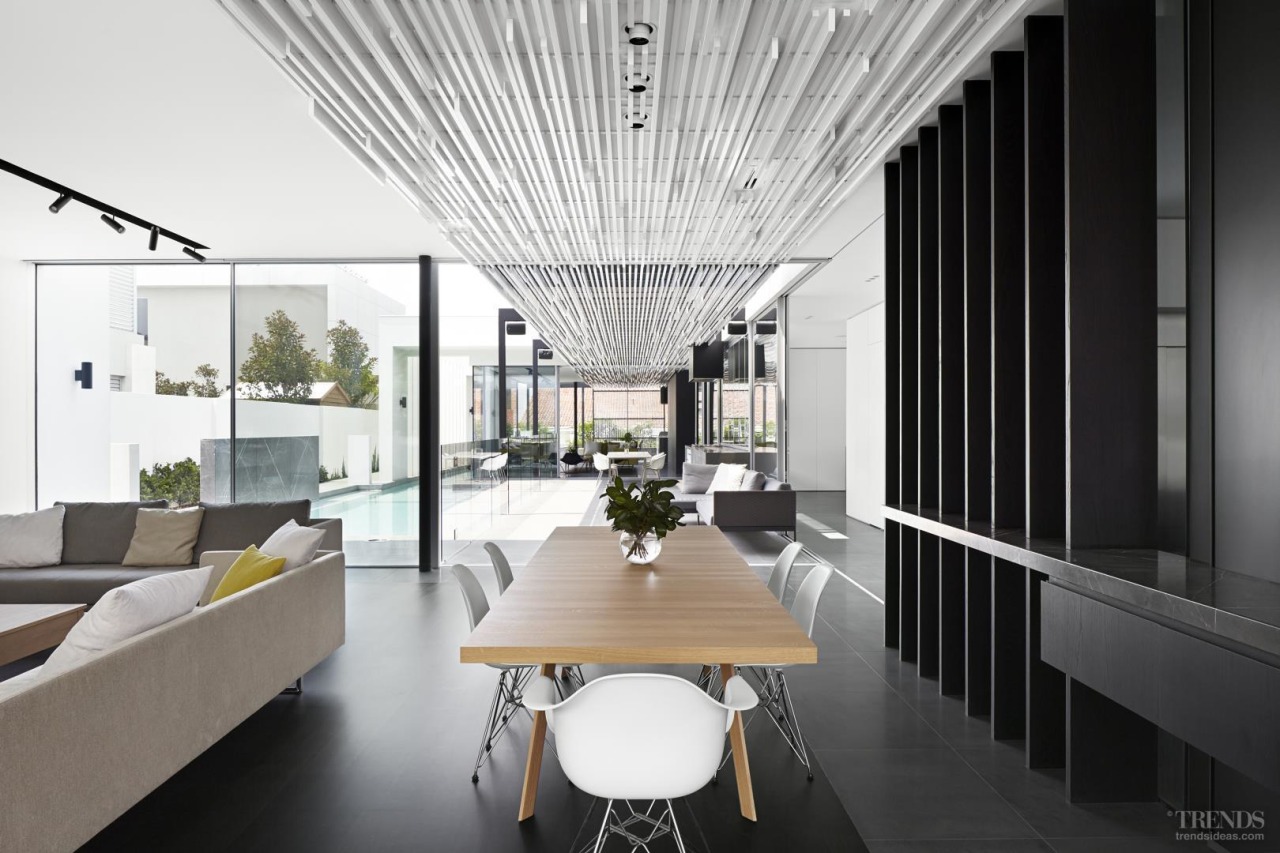
To address the need for privacy from the street, the architects layered the front facade with a series of operable screens. Aluminium louvres feature on the upper level, and the visual sense of layering is reinforced by a vertical pod element in dark zinc that pierces the roof to create an enclosed roof services deck.
Another screen, which incorporates a white Concept Click batten system, wraps up a pergola structure, then folds over the top to form a textural ceiling element that defines the main axis through the house. The ceiling runs from front to back, in and out of the house, to finally exit at the rear where it folds down a second pergola.
"We articulated this ceiling to help connect the two pavilions," says Steere. "It is almost like two arms pulling the family wings together. As well as having a distinctive visual aesthetic, the battens provide privacy on the exterior where they form a screen. They also provide sun shading to the terraces, help with acoustic insulation and conceal speakers and discreet lighting."
The dark zinc panelling on the exterior flows through into the house, forming a wall beside the formal living space and providing another close link between inside and out.
But it is the central indoor-outdoor living zone that creates the strongest connection. Both pavilions open directly onto a large terrace and the pièce de résistance – a 25m-long swimming pool that laps against the side of the house. With all the glass sliders open, the boundaries between inside and out are seamless – even the honed stone floor flows from one to the other.
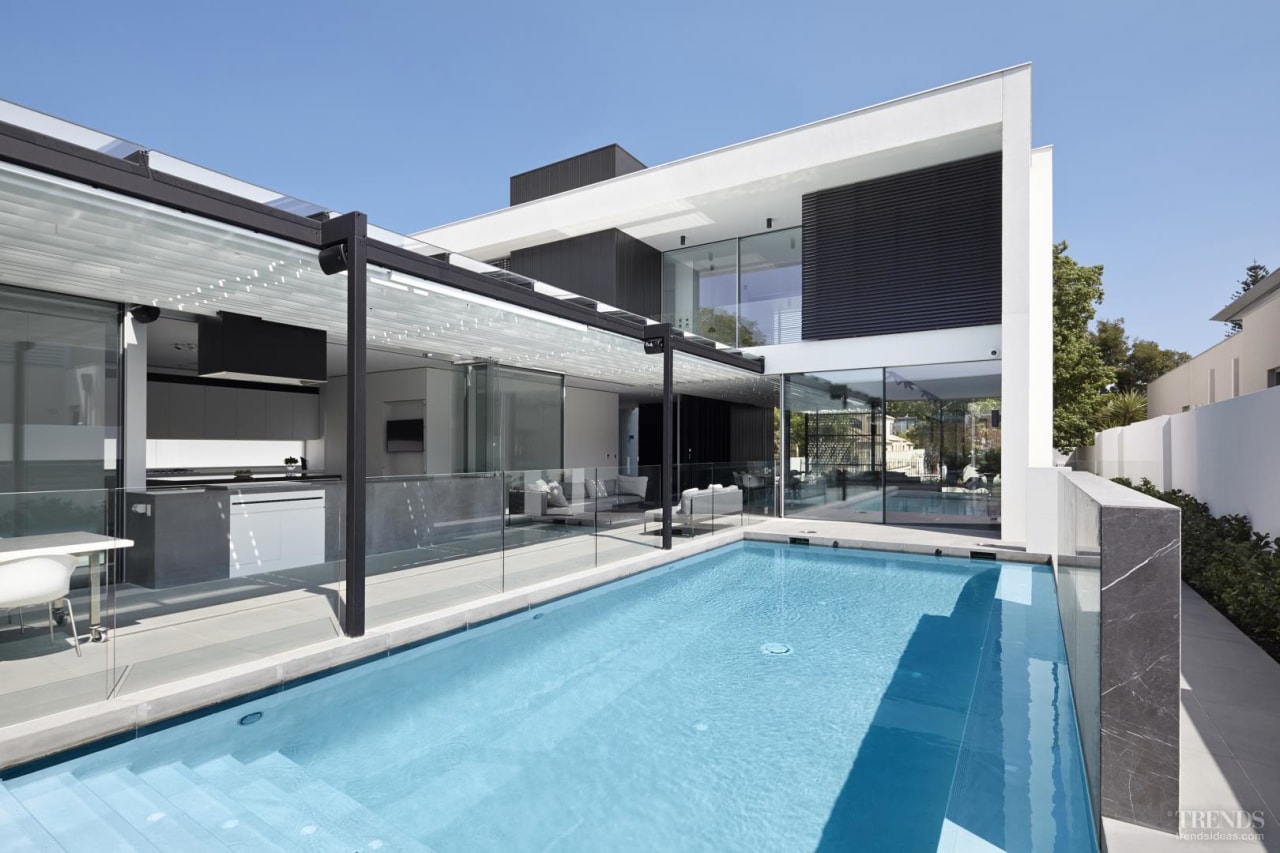
The kitchen, on the main axis, sits between the pavilions. In addition to an island wrapped in Pietra Grigio marble, there is a long serving counter facing the terrace. White cabinets reinforce the monochromatic colour scheme.
"The colour and material palettes have been controlled carefully," says Steere. "Throughout the house, vertical elements are in dark zinc, dark timber, or pure white. The kitchen cabinets are fabricated from white Corian with a matt texture. Corian also forms the walls in the central zone. These incorporate hidden doors to a pantry, cool room, wine cellar, powder room, laundry and storage areas. The absence of visible handles enhances the calming feel of the space."
The family wing in the rear pavilion includes a living room and four bedrooms. An extended arm of the pool – effectively one swimming lane – runs alongside the living room. Here, again, a screen provides privacy and a sense of enclosure.
"A colonnaded elbow beam structure above this part of the pool lets light through, yet screens the neighbouring property," says Steere. "The posts and the water cast interesting shadows and reflections that change throughout the day."
The family room opens to a barbecue terrace and steps that lead down to a grassed area.
Credit list
Architect
Landscape design and installation
Roof
Slimline glazing frames
Island benchtop
Paints
Lighting
Awards
Story by: Colleen Hawkes
Photography by: Jack Lovel
Home kitchen bathroom commercial design
Expanded presence
Light and refined
Sculpted by the wind and sun
Home Trends Vol. 31/12
Trends Home brings you the best homes, kitchens and bathrooms, both local and international. Each issue is packed with g...
Read More


